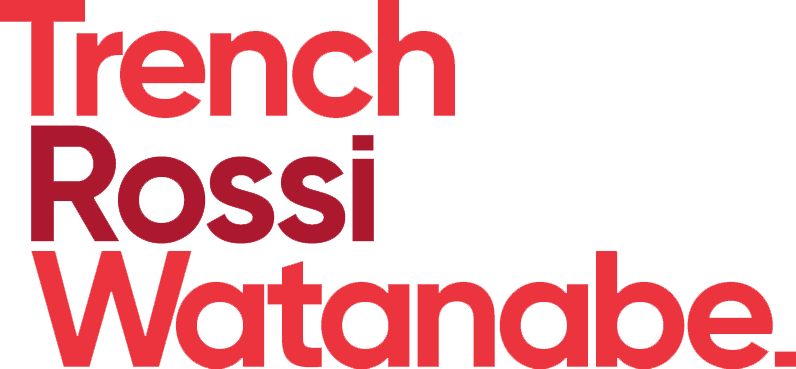In brief
On 16 March 2021, the House of Representatives rejected the amendments proposed by the Senate and approved Bill of Law No. 4,476/2020 (updated number of Bill of Law No. 6,407/2013) as per the text approved by the House on 1 September 2020 (“New Gas Law“). The New Gas Law is now subject to President Jair Bolsonaro’s final approval.
The New Gas Law establishes the foundations for the development of a liquid and competitive gas market in which there is no vertically integrated incumbent, there is open access to essential facilities and to the gas transmission system, and where the transport capacity is contracted by means of an entry-exit regime. As a result, a competitive market is expected, which will bring new investments into the industry as well as cost reduction and higher gas consumption.
In this sense, even though the federal government has adopted a great number of infra-legal measures (under the Gas to Grow (Gas para Crescer) and the most recent New Gas Market (Novo Mercado de Gás) programs), the approval of the New Gas Law is important in leading and granting legal certainty to the whole transformation process of the national industry, allowing multiple players involved in the sector to truly dedicate themselves to the implementation of the political/economic/regulatory architecture of the new national gas market ̶ especially because it would not be possible to implement all necessary measures to create liquidity and to develop competitiveness in the market solely by infra-legal means.
In this context, we have listed below the main innovations brought by the New Gas Law.
- Independence of transport system operator (TSO): The New Gas Law imposes unbundling rules on the transport system operator to ensure independence of the gas transmission system from other competitive segments of the gas value chain. The New Gas Bill prevents any direct or indirect controlling or affiliation relations between TSOs and companies or consortiums of companies that operate or perform exploration, development, production, importation, commercialization of natural gas. The New Gas Law also sets forth that a company that has already obtained authorization to perform gas transmission activities shall be subject to an independence certification process pursuant to the regulations of the National Agency of Petroleum and Natural Gas (ANP).
- Entry-exit regime: The New Gas Law implements the entry-exit regime as a rule for the allocation of transport capacity. This model ensures more flexibility in the use of the transportation infrastructure by the market ̶ allowing the use of the natural gas transportation service by a greater number of players and perfecting market liquidity.
- Open access to essential infrastructure: Unlike the provisions of Law No. 11.909/2009, the New Gas Law ensures non-discriminatory and negotiated access by interested third parties to the essential natural gas infrastructure, which includes gathering pipelines, gas processing units and LNG terminals, as well as underground storage facilities. The New Gas Law also provides that the owner shall have preferential rights in using their own infrastructure.
- Transportation and storage activities subject to authorization: The granting regime set forth by Law No. 11.909/2009 for the performance of gas transmission activities and also applicable to the underground gas storage facilities is the concession regime (for new pipelines). Under the New Gas Law, the granting regime applied to new TSOs and underground gas storage facilities will be the authorization regime, which shall be granted by the ANP and always preceded by a public call for each new project. The change from the concession regime to the authorization regime for the performance of gas transmission activities and underground storage facilities is intended to reduce the bureaucracy inherent to the process of granting concessions and, as a consequence, to attract new infrastructure-related investments to both sectors.
- Transportation pipelines classification: The New Gas Law establishes a more better-defined set of criteria for the classification of transmission pipelines. We believe the new criteria grants broader legal certainty to infrastructure-related investments in the sector, reducing the risks of conflicts of competence and disputes involving projects of national relevance.
- Protection mechanisms against infractions to the economic order: The New Gas Law assigns to the ANP the responsibility to elaborate and implement mechanisms to prevent anticompetitive practices, which may include:
- measures to enable the decentralization and mandatory assignment of transmission, gathering and processing capacity
- natural gas sales program in which players that hold large market stakes may be obliged to sell under auction portions of the gas volumes they own
- restrictions to the sale of natural gas between producers in the production areas
As mentioned above, the New Gas Law brings a series of important measures in an effort to liberalize the national gas market in order to attract new investments to the sector. Therefore, as it should be, the New Gas Law assigns the ANP the duty of regulating multiple relevant topics to the opening of the sector, including:
- rules for the certification of full ownership unbundling
- rules and procedures for the granting of authorizations for the activities of transportation and underground storage
- rules for the open access to essential facilities
- transportation pipelines technical classification based on the diameter and pressure of the pipelines
- organization and regulation of the transportation network in different natural gas transportation systems
- reviewing of the regulation for the entry-exit capacity-contracting model
- rules regarding the natural gas organized market and the standardization of sales and purchase agreements
- approval of rules that enable the harmonization of the natural gas transportation system by means of network codes, which shall include rules for the network balancing, decongestion, transference of income, and information between the TSOs
- mechanisms that offer decentralization, such as assignment of transportation, production gathering and gas processing capacity, as well as natural gas sales programs
- regulation of mechanisms of contingency in natural gas supply
Thus, depending on the way these different regulatory aspects are dealt with by the regulator, the result may positively or negatively impact the development of an open, free and competitive gas market as intended by the New Gas Law. Now that the challenge of approving and converting the bill into law has been overcome, even if presidential approval is still pending, the market’s concerns will be heavily targeted at the regulatory risk related to the ANP’s capacity of efficiently delivering and meeting the market’s expectations, especially regarding the reduction of transaction costs, which may be substantially raised by the regulator’s actions in complex and highly regulated markets, such as the natural gas market.
It is worth highlighting that the regulatory risk is softened by the ANP’s quality and technical background, a feature that has been intensified and notoriously recognized by the national oil and gas industry over the last few years.
In any event, bearing the regulatory risk in mind is important in order to understand that even though the approval of the New Gas Law is extremely relevant to the sector, it is not an end in itself, but the beginning of a long journey of restructuring an entire market model already deeply rooted in Brazil as a result of Petrobras’ dominant history in all segments of the natural gas value chain. In this sense, the market is expected to be intensified and the economic effects arising from the New Gas Law’s approval are expected to be more perceptible when the market has a clearer vision as well as bigger certainty regarding the path to be followed by the ANP on the implementation of the new gas regulatory framework.
Download full alert (Portuguese)
* * * * *

*In cooperation with Trench Rossi Watanabe, a Brazilian law firm.







